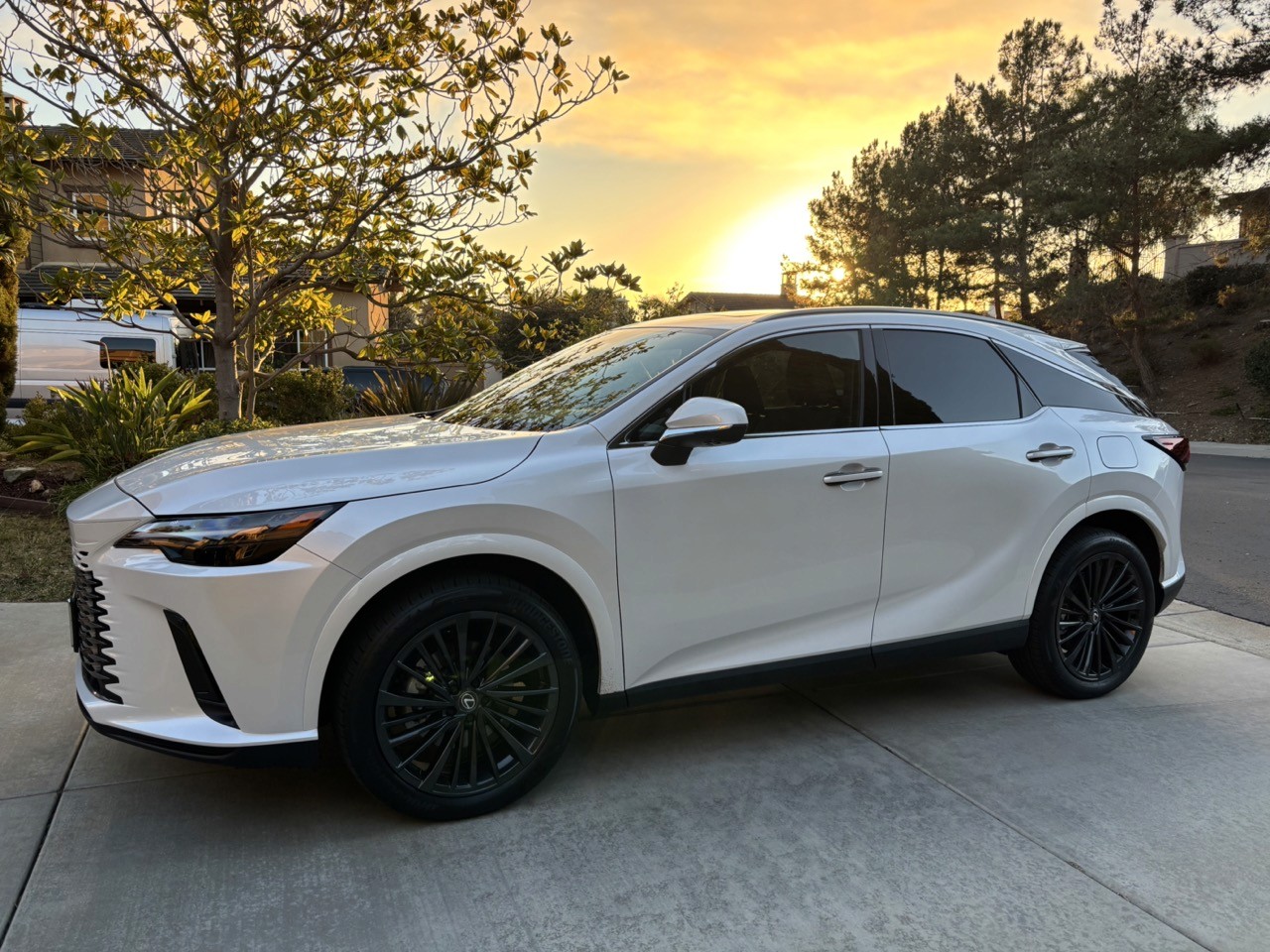
What Are Kelley Blue Book Values?
Written By
Peter O'Neil
Published
Dec 12, 2024
Delve into the different types of Kelley Blue Book values, when they are applicable and a brief overview of how they are derived.
A Glimpse into the Past: Les Kelley and the Start of Kelley Blue Book
In 1918, a man with a vision named Les Kelley embarked on an ambitious journey in the automotive industry with merely $450 in his pocket. His innovative approach led him to create a list of automobiles he desired to purchase, along with the prices he was willing to pay. This endeavor, known as the "Kelley Kar Company’s list of autos and the prices they were willing to pay", eventually transformed into what we now identify as the Kelley Blue Book in 1926.
During World War II the U.S. government utilized KBB values as the standard for determining used car prices. By the 1960s, the influence of Kelley Blue Book had crossed American borders. Its reputation for offering unbiased and precise valuations had earned it international recognition.
Today, Kelley Blue Book, part of Cox Automotive alongside Manheim Auctions and AutoTrader, continues to provide relevant information for the automotive industry. While the actual Blue Book is no longer produced, kbb.com, provides a vehicle valuation insights, equipping consumers and dealers with the knowledge to navigate the car buying and selling journey.
Understanding Blue Book Values: A Guide for Consumers
Let's review the vehicle value offerings from KBB.
1. Auction Value: This foundational value represents KBB's estimate of what a vehicle is expected to fetch at a wholesale auction. It's a valuation assuming full disclosure of the vehicle's condition and prior to comprehensive reconditioning for retail sale.
2. Trade-in Value: When considering exchanging their car at a dealership, consumers frequently turn to the KBB Trade-in Value. This value indicates what one can anticipate receiving from a dealer, post an accurate appraisal. Given that the dealer bears the costs of safety inspections and reconditioning, the Trade-in Value is typically less than both Private Party Value and the Auction Value. This often comes as a surprise to many.
3. Private Party Value: For those looking to transact outside dealership bounds, the Private Party Value serves as a negotiation starting point. Representing an "as is" value, it excludes warranties, and the eventual sale price can vary based on the vehicle’s condition and regional market influences.
4. Instant Cash Offer: Taking convenience to the next level, KBB's Instant Cash Offer is a fixed amount proposal for a consumer's vehicle. This offer considers unique vehicle features, specific conditions, and local demand. Valid for 7 days, it can be redeemed at participating dealerships.
5. Used Car Fair Purchase Price: For consumers on the buying end, the Fair Purchase Price provides a realistic figure they can expect to pay for a used car in their area, exclusive of taxes and other fees. Updated weekly, this value takes into account actual used-car transactions and various other reliable third-party data sources.
You can review the full list of Kelley Blue Book values and their definitions at this link.
Normalizing Transaction Data: How KBB Determines Market Values
Kelley Blue Book utilizes transaction data from a variety of touch points in the automotive ecosystem, such as vehicle transaction data from new and used car dealerships, vehicles listed on AutoTrader and used vehicles sold at auctions. But each of these transactions are unique, so a data normalization process is undertaken to create a proprietary model that can estimate a vehicle's value, based upon a number of criteria, such as mileage, location, powertrain, trim (i.e., EX, Sport, Platinum etc.) and condition.
To add a little more context to this approach, let's just focus on the used car market. In any given week there are thousands of various used Honda Civics being sold at auctions and to consumers via dealerships across the U.S. Not one of these Civics are the same, in terms of color, mileage, condition or location. Even if they were all EX models and we knew exactly the equipment on each one, the differences in color, mileage, condition and location would still exist. So take all of these various data points, statisitcians will normalize these variables to create a consistent baseline, allowing us to compare apples to apples. This normalization process involves accounting for factors such as mileage depreciation, regional market trends, and even seasonal demand fluctuations. Once normalized, the data can be analyzed to determine fair market values, identify trends, and predict future pricing behavior. This approach ensures that each Honda Civic, despite its unique characteristics, can be assessed in a way that aligns with both consumer expectations and market realities.
Vehicle Reconditioning: What Does It Mean?
When we talk about vehicle reconditioning, we refer to the process of restoring a used vehicle to a condition that makes it more attractive for resale. This includes a gamut of tasks:
Mechanical Repairs: Addressing any functional issues the vehicle might have.
Cosmetic Repairs: Rectifying external and internal blemishes, dents, or damages.
Safety Checks: Ensuring the vehicle adheres to safety norms and is devoid of any safety risks.
Detailing: A thorough cleaning, polishing, and waxing to ensure the vehicle looks as good as new.
Reconditioning is an essential phase in the life cycle of a used car, enhancing its value and appeal. Consumers should always inquire about the extent of reconditioning a vehicle has undergone before making a purchase.
With the Advent of Online Offers to Purchase is Kelley Blue Book Still Relevant?
Kelley Blue Book is a helpful resource, but for consumers who want to know how much their car is worth to sell or trade-in, is it still relevant? Yes, but there are ways to obtain an actual offer on a car, and one well known alternative is CarMax. CarMax retails used cars and purchasing used cars directly from consumers is an area they have leaned into and now others in the industry have also offered the same service.
The difference is that Kelley Blue Book Trade-in Value is an estimate of what a potential dealer would offer for a vehicle when trading it in. However, this number is just an estimate and while it is based on market data, whether or not that particular dealer is interested in your 2018 Nissan Altima with 84,000 is another matter. In other words, not every dealer will view the vehicle with the same perspective.
So while Kelley Blue Book Trade-in Value is a great place to start, if you want to know what your car could be sold for today, CarMax is a good place to start. CarMax offers online appraisals but the best way to have certainty about what your car is worth to CarMax is to have them inspect the vehicle at one of their locations. That way there is no doubt, what CarMax would pay for your car because they have physically seen the vehicle, and given you a written offer good for a set number of days and mileage.
Are there other alternatives to CarMax? Plenty, including one offered by Kelley Blue Book, which you can read more about in this article about getting the most money for your car. There are typically local options as well and this is where, for California residents, the CarOracle Auto Buying Program can be helpful, where a licensed auto broker, who follows the market, can offer guidance on which avenues would be worthwhile to pursue to maximize the value of your vehicle.
Wrapping Up
Kelley Blue Book, through kbb.com, remains a valuable resource for those seeking clarity in automotive transactions. The diverse range of Blue Book Values, combined with insights into vehicle conditions and reconditioning, ensures that, regardless of whether you're buying, selling, or trading, you have a valid reference point when trying to understand the market. With that said for consumers on the verge of a car transaction and have an interest in knowing, down to the dollar, what their car is worth, other alternatives are more relevant.















